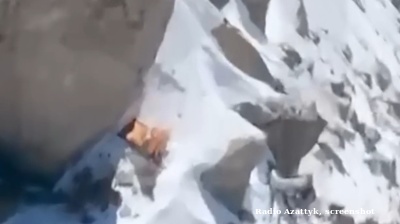Argentina has moved to prosecute ten Iranian and Lebanese nationals in absentia over the 1994 bombing of the AMIA (Argentine Israelite Mutual Association) centre in Buenos Aires, which killed 85 people and injured over 300 in what remains the deadliest terrorist attack in Argentine history.
Federal judge Daniel Rafecas confirmed the ruling this week, marking the first time the country will carry out a criminal trial without the accused being present.
This landmark development comes after decades of stagnation in the case, rooted in both political obstruction and international inaction. The suspects — among them former Iranian ministers and Hezbollah operatives — have been fugitives since 2006, with red notices from Interpol and international arrest warrants having failed to produce any detentions due to Iran's refusal to extradite its nationals.
The ruling, as reported by AFP and Perfil, follows Argentina’s recent legislative reform that legalised trials in absentia. This was pushed through Congress earlier this year, specifically to address longstanding impunity in cases like the AMIA bombing. The legal change, spearheaded by President Javier Milei, allows Argentine courts to proceed when defendants deliberately evade justice, as is the case with these ten individuals. The AMIA Special Prosecutor’s Unit (UFI AMIA) had formally requested the application of the new procedure, citing the accused’s “systematic elusion” of justice and their decades-long non-compliance with extradition requests.
The individuals due to stand trial include former Iranian intelligence chief Ali Fallahijan, ex-foreign minister Ali Akbar Velayati, former defence minister Ahmad Vahidi, and the former cultural attaché at the Iranian embassy in Buenos Aires, Mohsen Rabbani, considered one of the masterminds of the operation. Others include Ahmad Reza Asghari, Hadi Soleimanpour, Salman Raouf Salman, Abdallah Salman and Hussein Mounir Mouzannar. Two additional suspects, including then-president Ali Akbar Hashemi Rafsanjani, have since died.
The attack, which occurred on July 18 1994, involved a Renault Trafic van packed with approximately 400 kilograms of explosives, including ammonium nitrate, TNT, and nitroglycerin. The vehicle was detonated outside the AMIA building in Buenos Aires’ Once district, home to Latin America’s largest Jewish community. The scale of the attack, both in human cost and symbolic weight, shocked the country and remains to this day a source of national trauma.
Despite the Hezbollah-linked group Ansar Allah claiming responsibility in the days following the bombing, the case was quickly marred by institutional failure and cover-ups. The initial investigation, which ran from 2001 to 2004, resulted in all suspects being acquitted and exposed major irregularities in the handling of evidence. This prompted a parallel investigation into judicial corruption, eventually implicating former President Carlos Menem, his intelligence chief Hugo Anzorregui, and several federal police officers.
A subsequent trial between 2015 and 2019 addressed the systematic concealment of evidence and the so-called "Syrian track" diversion, widely seen as an effort to deflect blame from Iran. Further complications arose in 2013 when then-President Cristina Fernández de Kirchner signed a highly controversial Memorandum of Understanding with Tehran, allowing suspects to be interrogated in Iran. The deal was later annulled, and Kirchner now faces trial for allegedly conspiring to shield the Iranian suspects, among other legal woes.
In April 2024, an Argentine court formally declared the AMIA bombing a “crime against humanity” and directly implicated Hezbollah in the attack. While it acknowledged Hezbollah's operational role, it stopped short of producing conclusive evidence linking the Iranian state to the operation. However, the court did suggest a potential political motive tied to Argentina's cancellation of nuclear contracts with Iran during Menem’s presidency.
The judicial determination to proceed with the trial, despite the absence of the accused, follows a broader trend of international pressure on Argentina to deliver justice. In 2023, the Inter-American Court of Human Rights condemned the Argentine state for its failure to prevent the bombing, and for obstructing and manipulating the subsequent investigations.
Rafecas dismissed objections from the defendants’ official legal representatives, who argued that the trial in absentia violated due process. He emphasised the “material impossibility” of securing the accused’s presence and the “exceptional” nature of the crime. “This trial is not just a judicial formality,” he stated in the ruling, “it is a necessary act to prevent impunity for crimes against humanity.”
The ruling is still subject to appeal, with three working days granted for challenges to be filed. If upheld, the oral proceedings are expected to begin within the year, setting a legal precedent for handling cases of international terrorism where suspects remain beyond the reach of domestic justice.
It comes as President Milei recently branded Iran as "an enemy" of Argentina and reaffirmed his unconditional support for Israel amid escalating Middle East tensions, abandoning the country's traditionally non-aligned foreign policy stance.
Milei has become one of the most vocal supporters of Israel in the global arena, visiting the country twice since taking office in 2023, dismissing criticism over the war in Gaza and vowing to move the Argentine embassy from Tel Aviv to Jerusalem next year.
News

Russia orders emergency operation in race to save mountaineer trapped on Kyrgyzstan’s highest peak
Top official responds to desperate appeal from climber Natalia Nagovitsyna’s son who believes she is still alive.
_1756222537.jpg)
End of Bolivia's leftist era leaves Chinese and Russian lithium deals in limbo
Bolivia’s October presidential run-off has become a contest not only between two political traditions but also over the management of the country’s vast but underdeveloped lithium resources.

UPDATED: Kosovo gets parliament speaker but months-long political stalemate persists
Prolonged political deadlock had prevented Kosovo's assembly from functioning and blocked the formation of new state institutions since the February general election.

Turkey’s “fast lane” transport minister hit with motorway speeding ticket
Abdulkadir Uraloglu posted video of himself driving at 225 km/h, with clip set to folk music and Erdogan speeches on infrastructure.




